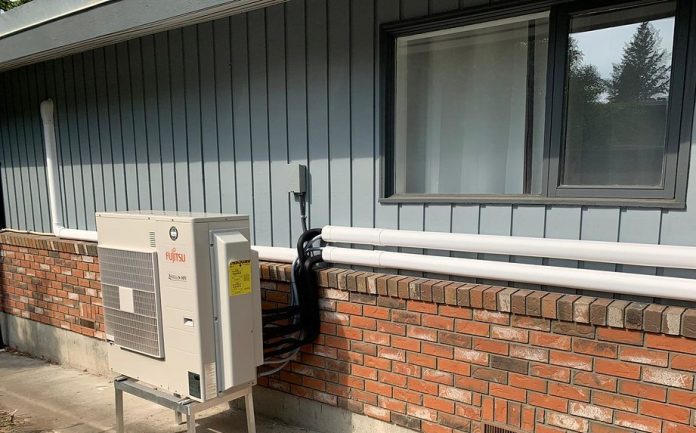- EPG’s latest study analyzes the prospects for the adoption of heat pumps in Romania until 2030.
- Heat pumps are a priority technology for European and Romanian energy policies.
- Using a heat pump alongside rooftop photovoltaic panels to feed and inject surplus electricity into the grid lowers annual energy costs below the aggregate costs of gas-fired central heating.
- The adoption of collective heat pumps, at the block or neighborhood level, will be facilitated by the exploitation of the geothermal potential of the underground of the large municipalities in Romania.
- EPG’s recommendation is to introduce a public grant program for the purchase and installation of heat pumps, with a financial threshold of a maximum of 50% of the value of the heat pump and a maximum of 3,000 euros for ground-water heat pumps, respectively 1,000 euros for heat pumps air-water.
For complex systems of heat pump + PV panels + storage, an upper subsidy limit per home could reach 6,000 euros. The latest EPG study written by Radu Dudău, Radu Cîrligeanu, Corina Lazăr and Sonia Florian analyzes the prospects for the adoption of heat pumps in Romania until 2030. The European target of a 55% reduction in carbon emissions by 2030 and the climate neutrality trajectory by 2050 require an ambitious plan to introduce heat pumps to decarbonise the heating and cooling sector, but also for industry. In the report, EPG researchers evaluated the average costs of installing heat pumps in six types of residential buildings considered representative for Romania – three types of single-family houses and three types of multi-family buildings (condominiums) – with a sufficiently high energy class.
Installation cost conclusions:
- Estimated investment costs: o 6,000 – 18,000 euros for individual houses o 6,000 – 7,500 euros for apartments
- Considerably lower costs (1,700 – 2,100 euros) for high-capacity common pumps (Condominium 2)
- In general, higher investment costs are associated with lower operating costs
- The adoption of collective heat pumps, at the building or neighborhood level, will be facilitated by the exploitation of the geothermal potential of the underground of large cities in Romania EPG researchers have also developed four scenarios for the adoption of heat pumps in Romanian households by 2030, mainly achievable by replacing individual gas plants in existing buildings with heat pumps: a minimal scenario (500,000 units), an intermediate scenario -moderate (700,000 units), an intermediate ambitious scenario (900,000 units) and an optimistic scenario (1,100,000 units).
Also, the authors performed modeling regarding the annual energy consumption as well as the annual emissions, on EPG scenarios compared to gas plants.
Conclusions:
- At the current ratio of gas to electricity prices (greater than 4), the annual heating cost is higher using air-to-water heat pumps than using gas plants.
- Adding photovoltaic panels on the roof to power the heat pump and inject surplus electricity into the grid lowers annual energy costs below the aggregate costs of gas central heating – and even more if a battery is integrated into the system.
- The annual CO2-equivalent emissions are considerably higher for gas-fired plants, in contrast to heat pumps, respectively heat pumps + rooftop PV panels and heat pumps + PV panels + batteries.
- The installation of heat pumps will translate into avoided costs as soon as the ETS2 system comes into force (from 2027), thus also putting a price on carbon emissions from the construction and road transport sectors. Public policy recommendations:
- Introduction of a public program administered by the Environment Fund Administration (EFA) to grant up to €1,000 for air-to-water heat pumps and up to €3,000 for ground-to-water heat pumps. For a system composed of heat pump + photovoltaic panels on the roof + battery, the upper support limit should be at most EUR 6,000, covering at most 50% of the system value. A higher subsidy threshold of 90% should only be allowed for vulnerable consumers.
- Subsidies for heat pumps should be able to be combined with subsidies for building renovation.
- Legislation should be quickly adapted to allow the introduction of Virtual Net Metering (VNM) systems, whereby condominiums can enjoy all the benefits of PV panels installed on the shared roof.
- The distribution networks should be expanded and modernized, in order to be able to cope with a significant increase in the electrification of households that the four scenarios for the adoption of heat pumps proposed until 2030 assume.
- Public programs such as Casa Verde Clasic should be adjusted so that several beneficiaries can jointly use the subsidies to jointly invest in a heat pump on a larger scale, for the floor or even for the entire building.




